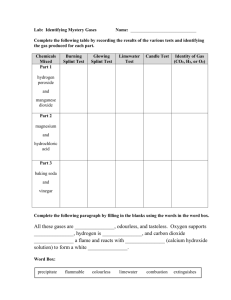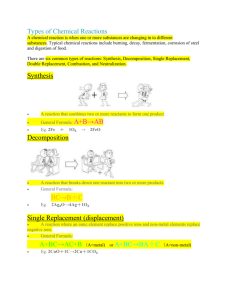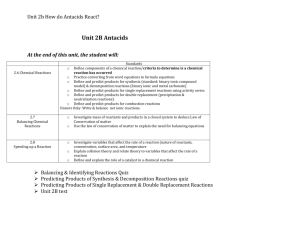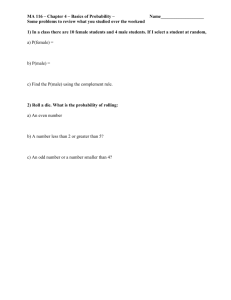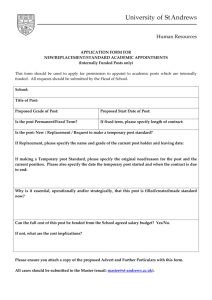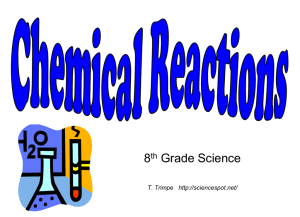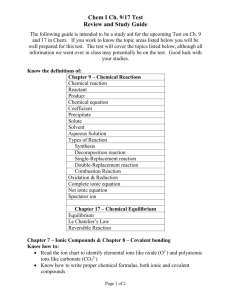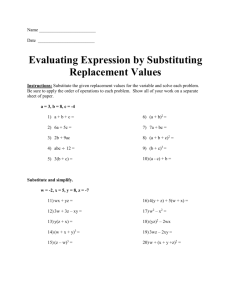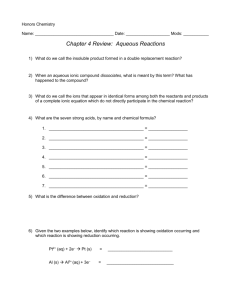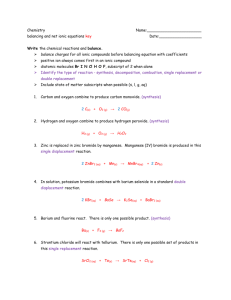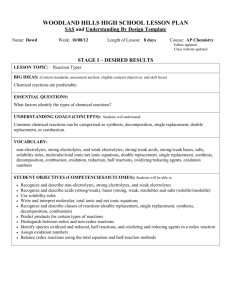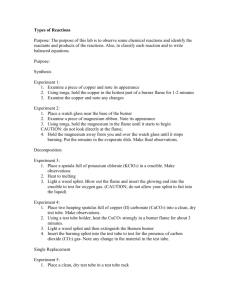Chemical Reactions – Chapter 11
advertisement
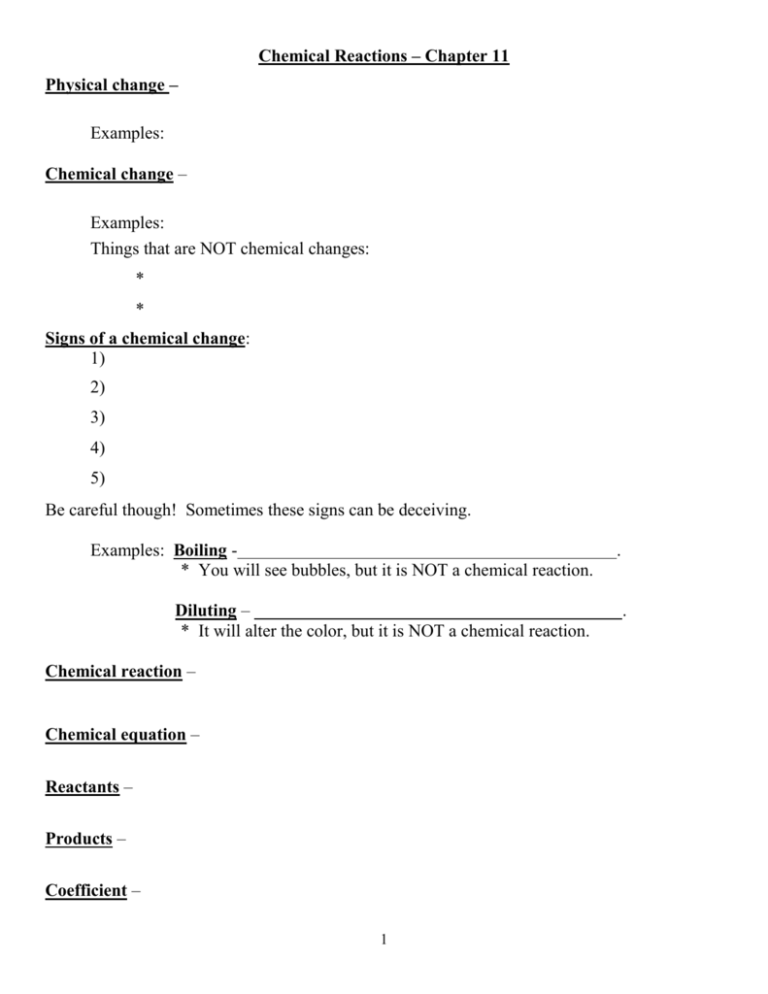
Chemical Reactions – Chapter 11 Physical change – Examples: Chemical change – Examples: Things that are NOT chemical changes: * * Signs of a chemical change: 1) 2) 3) 4) 5) Be careful though! Sometimes these signs can be deceiving. Examples: Boiling * You will see bubbles, but it is NOT a chemical reaction. Diluting – * It will alter the color, but it is NOT a chemical reaction. Chemical reaction – Chemical equation – Reactants – Products – Coefficient – 1 . . Subscript – Reaction Symbols: (s) (l) (g) (aq) Collision Theory – 1) Molecules must in order to react. 2) When they collide, they have to have a) . b) . Law of Conservation of Mass – Every chemical equation Therefore, equations must be balanced so that: . When Balancing Equations: Only can be changed!! NEVER change the Example: H2 + Al(s) + O2 Zn(OH)2 + Ag2S + !! CuSO4(aq) Al2(SO4)3(aq) H2O H3PO4 Al Cu(s) + Zn3(PO4)2 + Al2S3 + H2O Ag ___ Na + ___ I2 ___ NaI ___ Ca3(PO4)2 + ___ H2SO4 ___ CaSO4 + ___ H3PO4 ___ KClO3 ___ KCl + ___ O2 SO2 + C3H6 + O2 O2 SO3 CO2 + H2O 2 Types of Reactions: 1) Synthesis – 2) Decomposition – 3) Single Replacement – 4) Double Replacement – 6) Combustion – Predicting the Products – Single Replacement For single replacement – Use the . The free element must be If the free element is than the element in the compound. than the element in the compound, the reaction . Example: Cl2 + 2HBr 2HCl + Br2 If the free element is than the element in the compound, the reaction . Example: Br2 + 2HCl DNR (DNR = **Don’t EVER bring a ) across the arrow UNLESS it’s part of a Examples using the ACTIVITY SERIES. Ag + ZnCl2 NaCl + Li Zn + AgNO3 NaCl + I2 Zn + CuSO4 LiOH + Na 2NaI + Br2 3 . Predicting the Products – Double Replacement In order for a double replacement reaction to occur, one product MUST BE: o o o If all products are , it WILL NOT occur. Use the : o Soluble = o Insoluble = Examples: Ba(OH)2 + H3PO4 K2SO4 + CaCl2 FeBr2 + AlCl3 KOH + H2SO4 (NH4)2CO3 + CaCl2 Net Ionic Equations can be split into ions. (Don’t forget charges!) can be separated into ions. Substances that are cannot be separated. are removed from the ionic equation, leaving the . If Aqueous: Step 1 – Step 2 – Step 3 – 4 Example: Na2SO4 (aq) + BaCl2 (aq) 2NaCl (aq) + BaSO4 (s) Ionic Equation: Spectator Ions: Net Ionic Equation: Lab Tests * Burning Splint - A burning splint can be used to test for: (squeaky “pop” sound) (blow out the splint and it will reignite) ▪ Because fire needs O2 to burn. (flame will go out) ▪ Because CO2 smothers it. * Limewater and CO2 Clear, colorless limewater will turn a is added. 5 if carbon dioxide
